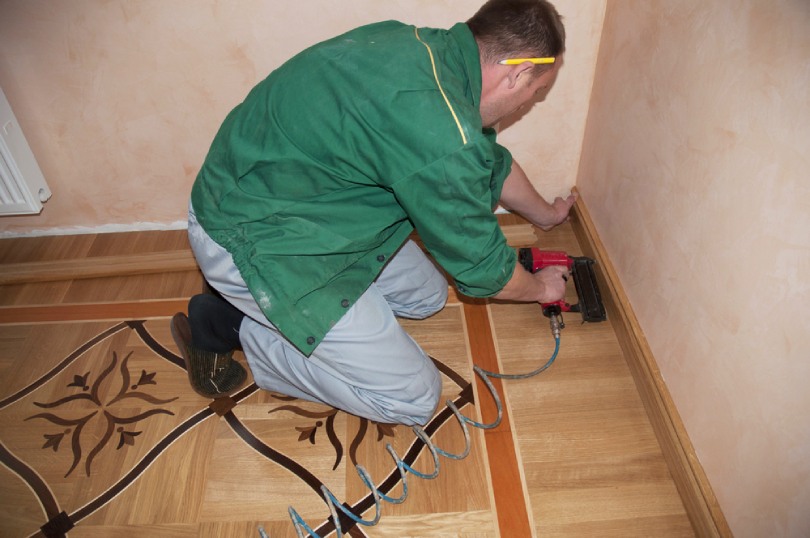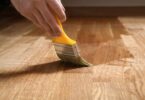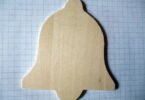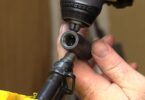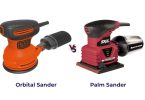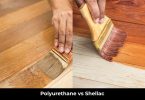Finish nailers are exactly what you’re looking for that drive either 15 or 16 gauge nails!
These versatile nail guns are small enough to be puttied over for the finished product but their solid build quality allows them to hold larger pieces.
What Type of Nail Gun For Baseboards
15 ga angled finish nailers
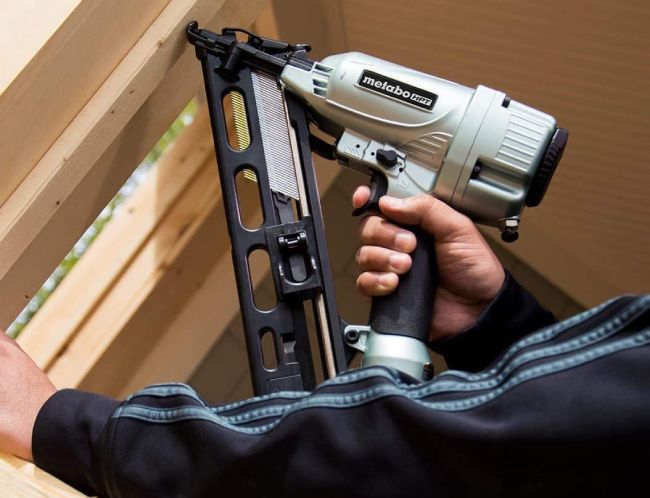
Angled nailers can get close to the floor or corners. Don’t get too close to the edge or the trim may snap.
These nailers leave larger holes in the finished work so you need to fill them up.
You only want to use 15 ga nailers for floor installation where grabbing power is required at the starting or finishing steps.
16 ga finish nailers
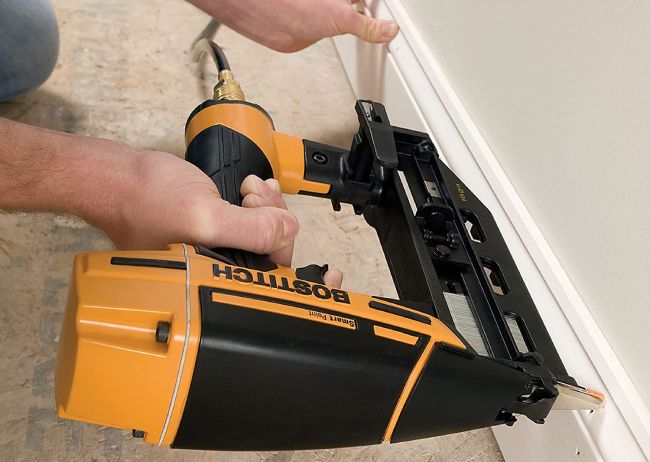
The difference between 15 ga and 16 ga finish nailers is bare minimum.
They handle nails upto 2.5 inches long but 2-inch nails are enough for baseboard projects.
16 ga nailers can shoot nails into thick trim pieces but they require slightly thinner nails. The small units weigh less, which makes them easy to operate.
The price of these nailers are similar to their 15 ga counterparts.
Brad Nailers for baseboards
18 gauge brad
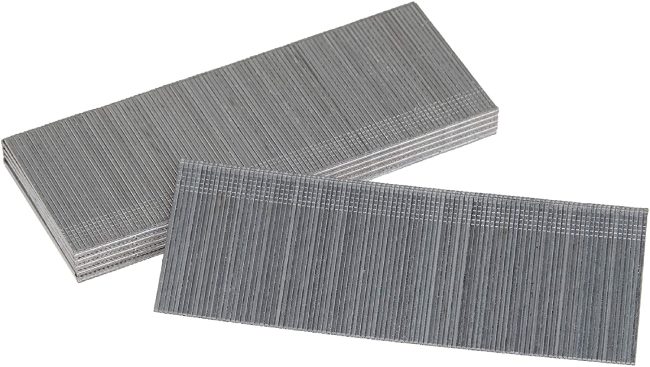
18 ga brad nailers are good for baseboards but the nail length is an important factor. The nail is thin with a small head so the power is minimal.
A good thing about the small nose is that it helps you place fasteners in corners that you can’t do with larger nailers.
You want to use brad nailers on wood-to-wood connections, i.e: trim to the jamb.
These nailers make holding boards together easy for strong fasteners.
Use two inch long 18 ga brads to nail thin baseboards but anything thicker requires two or 2.5 inch larger diameter finish nails.
A little bit of poly is enough to cover little holes that they leave on baseboards.
16 gauge brad
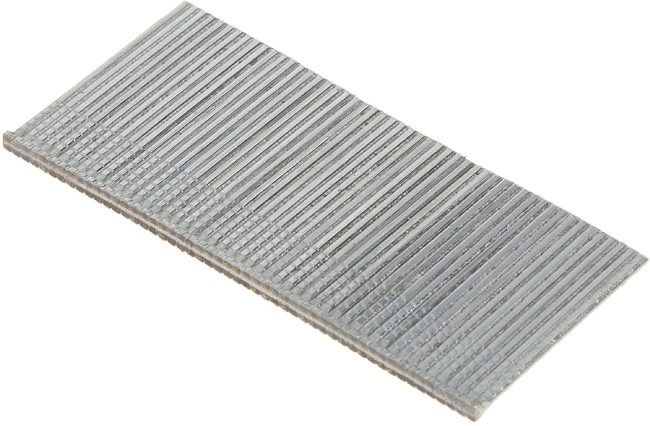
These nailers take up to 2.5 inch brads, which is enough to nail 3/4 baseboards. The brads are thicker than 18 ga.
16 gauge brads are the right tool for six inch tall baseboards. Put in a few extra nails and use two inch long brads for the job. Use these nailers with two inch nails for half inch baseboards and half inch drywall into studs.
Finish and brad nailer combo packs
Combo packs are a great way to use 16 ga nailers for base and 18 ga nailers for shoe molding. You don’t want to split shoe moldings with larger nails and have headaches to deal with later.
Don’t consider combo packs if you don’t need the stapler. Use 18 ga and 16 ga angled nailers for the job instead.
Pin nailers
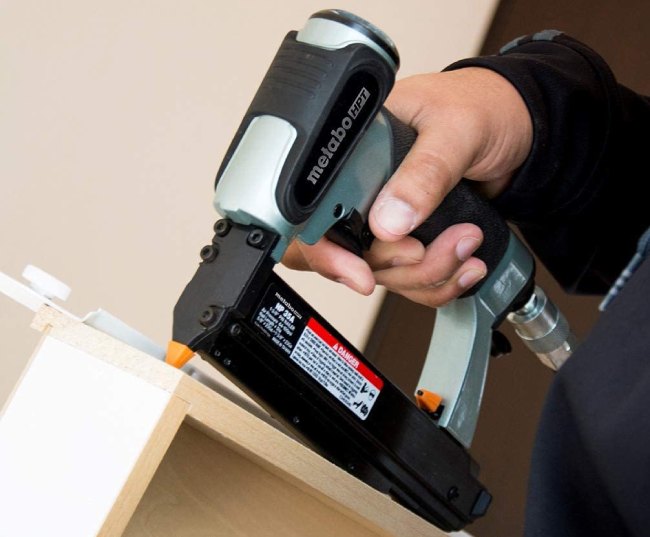
You can use your pin nailer on occasions for square finished end return cuts on base molding or for crown molding installations. You can also use a pin nailer with two other nailers if you have to do some fine trims.
The only issue with these nailers is that the holes are hard to notice and easy to miss out.
Pneumatic vs cordless nailers
Pneumatic nailers require less power to operate but cost less.
Spend extra money on cordless nailers if you don’t have an air compressor to run pneumatic nailers. They are also more convenient to use.
Why you should not overestimate or underestimate baseboard nail size
Too long nails have the risk of pierce through baseboards into pipes or wires so select the nails sensibly to avoid any exaggeration.
Baseboards aren’t secured enough when you use too short nails.
They may stay in place but get loose with natural shifts or flexes on the wall and regular wear and tear.
There will be noticeable cracks across baseboards once they detach from the wall so you want to be absolutely sure about the right nail size before you start to work on them at home.
Why are 15 ga and 16 ga nails the best for baseboards?
Both the 15 ga and 16 ga guns drive nails up to 2.5 inches with the main difference in nail diameter.
15 ga nails are bigger in diameter and the angled base of these nailers help you get to corners easily.
The thin 15 and 16-gauge nails are barely noticeable but sufficiently large and long to attach baseboards.
You have to spend less time filling up holes to make the baseboard look neat when you use these nails.
Which type of nail gun should you pick for baseboards?
Take the 18 gauge brad nailer if you have to choose only one nail gun for baseboards.
The lightweight gun runs economically and gets the job done with no effort. A little bit of ply covers holes that the nailer leaves so the finished work looks clean.
Working overhead is easier with this nailer and you have to spend less to buy one.

